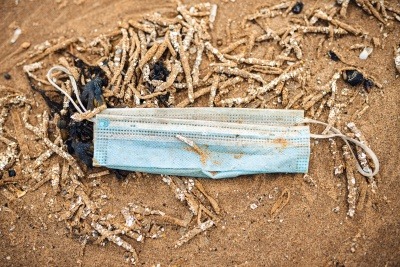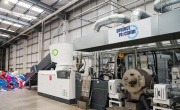WHO warns of pandemic waste wave
The World Health Organisation (WHO) is calling for reform and investment in medical equipment, following the release of a report that reveals the scale of medical waste from the COVID-19 pandemic.
 Released today (1 February), the report finds that discarded syringes, used test kits, and old vaccine bottles from the COVID-19 pandemic have accumulated to create tens of thousands of tonnes of medical waste, threatening human health and the environment.
Released today (1 February), the report finds that discarded syringes, used test kits, and old vaccine bottles from the COVID-19 pandemic have accumulated to create tens of thousands of tonnes of medical waste, threatening human health and the environment.
The report says that the material, a portion of which could be infectious since coronavirus can survive on surfaces, potentially exposes health workers to burns, needle-stick injuries and disease-causing germs. It adds that communities close to poorly-managed landfills could be affected through contaminated air from burning waste, poor water quality, or disease-carrying pests.
WHO points to the significant use of packaging for medical equipment, which it says has caused a rush of plastic, as well as the composition of personal protective equipment (PPE), which WHO states should prioritise reusable and recyclable materials. Before November 2021, an estimated 87,000 tonnes of PPE had been ordered via a UN portal, most of which is thought to have ended up as waste.
The report also draws attention to the 140 million tonnes of test kits with mostly plastic packaging, as well as the 144,000 tonnes of glass vials, syringes, needles and safety boxes accompanying global vaccine doses.
Even before the pandemic, WHO affirms, around a third of healthcare facilities globally were not equipped to manage existing waste loads, with this figure as high as 60 per cent in poor countries.
UK Government is ‘exploring alternatives’
Last week, Sarah Olney, Liberal Democrat MP for Richmond Park, asked what steps the Department for Health and Social Care (DHSC) were taking to improve the recyclability of COVID-19 testing equipment and PPE. In a written response, DHSC minister MP Edward Argar stated that NHS Test and Trace is ‘exploring alternatives’ to current test devices, which would be ‘recyclable or biodegradable’.
He continued: “We are reviewing the potential of reusable Type IIR masks in acute settings, using existing laundry services to reduce the need for single-use products. These reusable Type IIR masks will be recycled into curtains, mattress covers or other products to contribute to the sustainable disposal of personal protective equipment and zero to landfill recycling programme.
“We plan to pilot reusable eye protection where the product can be recycled at the end of its life. We have recycled 22 million visors to make plastic containers, which can be used to store food items and will also be recyclable.”





